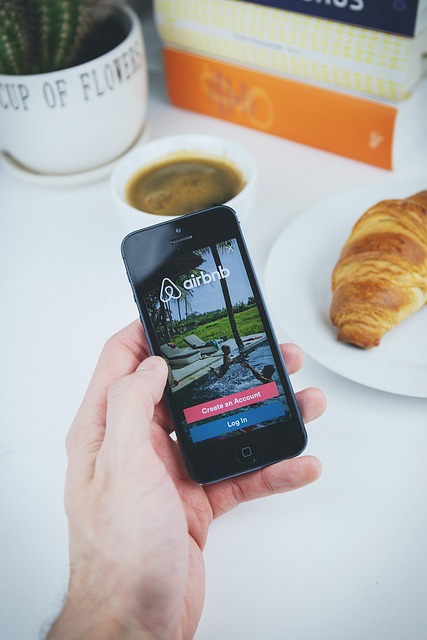
Airbnb, a player in the travel sector, boasts impressive figures. The application facilitated over 900 million bookings across its 5.6 million worldwide listings, enabling hosts to earn an average of $9,600 per year.
In 2020, Airbnb concluded a challenging year by successfully launching an IPO valued at an impressive $100 billion. The travel sector experienced significant impact from the global pandemic, as a result of widespread stay-at-home orders worldwide. A survey conducted in 2020 indicated that 70% of guests expressed apprehension about staying at an Airbnb, while 47% of hosts were hesitant to rent out their accommodations to unfamiliar individuals.
According to a recent report from Mashvisor, the industry is showing signs of improvement. With efforts to combat the global pandemic and the easing of stay-at-home orders, there is a growing desire for vacations among many individuals. A survey indicates that approximately 62% of people have intentions to travel.
How Much Does It Cost to Start an Airbnb Business
Based on our review of the sources (SixFiguresUnder, PassiveAirbnb, BiggerPockets), the estimated average startup cost for initiating an Airbnb business is $6,000. This analysis allowed us to determine the expected startup costs.
- Minimum startup cost for an Airbnb Business = $3,900
- Maximum startup cost for an Airbnb Business = $30,000
- Average startup costs for an Airbnb Business = $6,000
The cost of starting an Airbnb business may differ depending on the location, but it is important to consider certain expenses when preparing to establish the business. Provided below is a comprehensive breakdown of the various categories of costs to consider when commencing an Airbnb business.
- Purchase Cost: $0 and up
- Insurance: $500 and up
- Furniture Cost: $2,000 – $3,000
- Utilities and Various Subscriptions: $40 – $70
- Home Outfitting: $200 and up
- Consumable Goods: $50 and up
- Services (ex: photographer): $100 and up
Starting an Airbnb with No Money
Let’s assume that you are unable to afford the initial expenses of an Airbnb and don’t possess a property or the means to purchase one. Does this mean you have no options? Hostfully has published an article that presents 5 methods to become an Airbnb host without property ownership. I particularly liked a couple of these suggestions.
- Make use of your unused rooms in your existing home or apartment
- Become a property manager for other Airbnb units as a way to get your foot in the door
- Rental arbitrage – you can sign a long term lease on a space and rent it out on Airbnb (hopefully for more than you paid for your long term lease).
How To Make Money With An Airbnb Business
To begin an Airbnb business, the first step is to plan and conduct market research. The online platform simplifies the process of listing properties for investors, as long as they consistently offer a positive experience to guests. Follow the steps below to acquire knowledge on how to establish an Airbnb business promptly.
1. Set Your Expectations
To initiate an Airbnb business, the initial step is to clearly define your expectations. Certain individuals may desire additional income, whereas others may aspire to establish a complete rental enterprise.
To make business decisions in the future, it is important to first identify your priorities. To start, investors need to figure out the number of properties they plan to rent, the amount of income they desire, and the estimated time commitment they can dedicate.
2. Choose Your Location
When it comes to short-term rental properties, location is a crucial factor in real estate, even more so than for long-term rentals that can be leased successfully in various markets nationwide. The success of short-term rentals heavily relies on their location.
When searching Airbnb markets, investors should take into consideration popular tourist areas. Additionally, selecting the right location for your property should not exclude considering long-distance real estate investing strategies.
3. Pick Your Property
Once you have selected the appropriate location, the next step involves determining your preferred property type. An advantageous aspect of renting an Airbnb is the abundant variety of housing options available.
When searching for properties in cities, it is not unusual to find diverse listings such as houses, condos, apartments, houseboats, and tree houses. As an investor, it becomes necessary to determine the specific property type that will yield the desired outcomes.
In addition to researching the markets where they intend to purchase, investors must also explore the particular neighborhoods within those markets. Analyzing the areas that attract the highest number of tourists is a good starting point. After that, one should consider whether a beach retreat or a city apartment would be the preferred offering. Throughout the research process, it is important to keep the ultimate objective in mind and select a property that aligns with the goals of the business.
4. Understand Associated Costs
Although listing a property on Airbnb is free, there are charges for booking guests. The fees charged by Airbnb may vary from three to five percent of the total booking expenses. Additionally, depending on your location, there may be a need to obtain a rental license. Therefore, when selecting a property, it is important to consider the portion of earnings that will be allocated to Airbnb and any necessary licensing fees.
Investors need to keep in mind the expenses associated with furnishing and upkeeping an Airbnb property, as many guests seek properties with furniture and additional amenities.
When considering it from the standpoint of a property owner, this implies incorporating essential furniture, kitchen supplies, and even entertainment choices. Nevertheless, despite the initial expenses associated with commencing your Airbnb enterprise, integrating amenities and furniture will solely enhance the competitiveness of your property on the internet.
5. Know The Law
Before purchasing a property, it is advisable for a property owner to have knowledge of the laws in a specific area. A good starting point would be to thoroughly read Airbnb’s user agreements and host rules. Additionally, if applicable, it is important to refer to the rules of the homeowner’s association, keeping in mind the type of property you own.
6. Form Your LLC
After completing the planning phase for your business, it is advisable to establish a limited liability company (LLC). Creating a real estate LLC enables you to conduct business operations and manage taxation effectively. A foremost advantage of commencing an LLC lies in its ability to safeguard you against legal troubles concerning your properties.
LLCs provide various tax advantages to investors. The first step is to name your business, create an operating agreement, and file it with your state’s LLC office. To gain more knowledge, read this detailed guide on initiating a real estate LLC.
7. Plan Your Business
When considering rental properties, the importance of marketing and advertising cannot be underestimated in order to attract tenants. Therefore, when establishing the structure of your business, it is essential to include future marketing strategies by designing your brand and defining your voice.
To begin, create a logo, color scheme, and any tag lines that you want your business to be associated with. If you are unsure how to start, try doing some online research. This will help you identify branding elements that you both like and dislike, making it easier to plan a voice for your company.
8. Price Your Rental
The key to earning money on Airbnb is determining how to set the right price for your rental. Inadequately pricing it may result in failure to cover expenses, while overly expensive rates may lead potential guests to choose alternative accommodations.
To achieve the ideal equilibrium, examine the nightly rates of comparable properties in the area. Furthermore, it is advisable to modify the price periodically in response to various factors such as seasonal fluctuations, holiday periods, and other relevant considerations.
Besides determining the nightly rate for your property, you also have the option to establish one-time fees for each booking. Typically, property owners impose a cleaning fee in addition to the nightly rate to compensate for the expenses incurred in preparing the property for incoming guests. Nevertheless, similar to the nightly rate, it is important to align your fees with those charged by similar properties in the vicinity.
9. List The Property
After establishing your business and choosing a property, the next step is to generate an Airbnb listing. Fortunately, the Airbnb platform is incredibly user-friendly. To begin, come up with a compelling title for your property. It is important to keep the listing name within 35 characters or fewer according to Airbnb’s guidelines, so ensure brevity. For instance, you may consider titles like “Historic Downtown 2BR – Full of Charm” or “Cabin Retreat – Scenic View and Heated Pool.”
You will be given a series of questions about the type of property, its availability, and pricing. Additionally, information about the presence of WiFi, parking, laundry, and other standard amenities will be provided to guests.
To create the perfect listing, the final step will be to upload interior and exterior pictures to enhance the visibility of the property. If there are any additional features such as a pool or patio, make sure to include pictures of them. Lastly, before posting the listing, it is essential to thoroughly review the entire content to avoid omitting any details.
10. Continuously Work To Improve Your Property
After listing your property on Airbnb, it is essential to consistently observe guests to guarantee a satisfactory experience and receive favorable reviews. Prospective guests often rely on Airbnb’s public review system to determine their stay at a specific property.
To ensure your rentals receive positive reviews, it is important to ensure that your listing accurately reflects the property, ensure that the check-in and check-out processes are seamless, and be attentive and responsive to any inquiries from guests. Additionally, it is vital to regularly monitor the condition of the property to ensure that it remains in good condition between visits.
If the idea of constantly improving your Airbnb seems like it will take up too much time, bear in mind that you have the option to hire a property manager who can aid in handling the tasks. They can provide support in various aspects such as guest communications and property enhancements.
When calculating the potential profitability of a specific unit, take into consideration the fees of a property manager if you intend to work with one. There are various ways to operate your Airbnb business, but by continuously improving, you can ensure the success of your property.
How Much an Airbnb Make
Before embarking on the Airbnb journey, it is essential to consider and discuss the various factors that can impact the revenue potential of an Airbnb business. AlltheRooms reports that the average annual revenue for an Airbnb Host in the US is $41,026.
Airbnb Host Profitability and Mortgage Rates
The interest rate you are paying on your mortgage has the potential to significantly affect your ability to cash flow your Airbnb. In the scenario, we considered a property valued at $250,000 with a monthly payment of $1,000.
If you don’t have a fixed interest rate or buy your property now, 30 year mortgage rates in the US have gone up to approximately 7% in the fall of 2022. For instance, a property with a $230,000 mortgage and a 3% interest rate would require a monthly payment of $970. However, with a 7% interest rate, the monthly payment rises to $1,530.
Airbnb Getting So Expensive
The prices of Airbnb properties are rising due to increased operating costs, which is leading hosts to raise their prices in order to make a profit.
Based on the cash flow analysis above, it is challenging for an Airbnb to produce positive cash flow unless the property owner handles all cleaning and property management tasks.
By using our cash flow calculator, you can determine the increase in your nightly rate required to compensate for a mere 5% decline in your property’s value.


